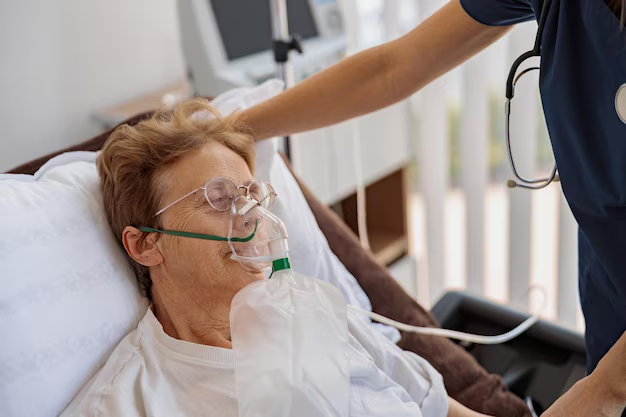Is Pneumonia a Threat to Your Health? Understanding Its Risks and Impacts
In today’s world, our understanding of diseases and their impacts have never been more critical. Among these illnesses, pneumonia remains a significant concern, affecting millions globally each year. While it's often perceived as just a common respiratory issue, many are left wondering, "Is pneumonia a deadly disease?" Let's dive into the depths of pneumonia, examining its potential risks, factors that contribute to its severity, and what you can do to safeguard your health.
What is Pneumonia?
Pneumonia is an infection that inflames the air sacs in one or both lungs. These air sacs may fill with fluid or pus, causing symptoms such as coughing with phlegm, fever, chills, and difficulty breathing. Various organisms, including bacteria, viruses, and fungi, can cause pneumonia. The most common type of bacterial pneumonia is pneumococcal pneumonia, while viruses like influenza can also be culprits.
Symptoms and Diagnosis
Symptoms of pneumonia can range from mild to severe depending on factors like age, the cause of the infection, and overall health. Common symptoms include:
- Cough, often producing mucus or phlegm
- Fever and chills
- Shortness of breath
- Chest pain
- Fatigue or malaise
Diagnosing pneumonia typically involves a physical examination, where a healthcare provider listens to the lungs using a stethoscope. Additional tests, such as chest X-rays or blood tests, might be recommended to confirm the infection and identify its cause.
How Serious is Pneumonia?
Pneumonia’s seriousness can vary significantly. While some individuals recover with rest and appropriate treatment, others may face life-threatening complications. The critical factors that influence pneumonia's severity include:
- Age: Infants, young children, and the elderly are at higher risk.
- Health Conditions: People with chronic illnesses such as diabetes, heart disease, or weakened immune systems are more vulnerable.
- Type of Pneumonia: Viral, bacterial, and fungal pneumonia can vary in their impact and treatment approaches.
- Pneumonia Complications: Complications may include bacteremia, lung abscesses, pleural effusions, and acute respiratory distress syndrome (ARDS).
Vulnerable Populations
Certain populations are more susceptible to severe cases:
- Infants and Children: Their immune systems are still developing, making them more prone to infections.
- Elderly: Aging can weaken the immune response, leading to a higher risk of pneumonia and its complications.
- Compromised Immunity: Conditions like HIV/AIDS or treatments like chemotherapy can reduce immune function, increasing vulnerability.
Treatment Options for Pneumonia
Treatment for pneumonia depends largely on its cause, severity, and the patient’s overall health. Here are some general approaches:
Bacterial Pneumonia: Typically treated with antibiotics. Early treatment is crucial for preventing complications.
Viral Pneumonia: Often addressed through supportive care, as antibiotics don't target viruses. Medications to alleviate symptoms and antiviral drugs may be used.
Fungal Pneumonia: Requires antifungal treatment, typically prescribed in cases of fungal infections.
At-Home Care and Recovery
For mild cases, treatment may be feasible at home with plenty of rest, hydration, and medications to manage symptoms like fever and cough. It's essential to monitor symptoms and follow healthcare providers' recommendations closely.
Preventing Pneumonia
Prevention is always better than cure, and there are several strategies to reduce your risk of pneumonia:
Vaccinations: Immunizations can protect against certain types of pneumonia-causing bacteria and viruses, like pneumococcal vaccines and the flu shot.
Good Hygiene Practices: Regular hand washing, avoiding close contact with sick individuals, and wearing masks can reduce transmission.
Healthy Lifestyle: Maintaining a well-balanced diet, staying physically active, and ensuring adequate sleep can strengthen the immune system.
Importance of Vaccination
Vaccination stands as one of the most effective means to prevent pneumonia, especially in high-risk groups such as young children, older adults, and those with chronic health conditions. Vaccines like the pneumococcal vaccine can significantly reduce the risk of infection and are an essential element of public health strategies.
The Role of Public Health
Public health initiatives play a critical role in combating pneumonia worldwide. Efforts focus on:
Awareness Campaigns: Educating about the symptoms and risks of pneumonia and the preventive measures available.
Access to Healthcare: Ensuring vulnerable populations have access to vaccines and healthcare services is vital for prevention and treatment.
Research and Development: Ongoing research to develop new vaccines and treatment options continues to be a priority.
Conclusion: Addressing the Pneumonia Threat
While pneumonia can indeed be a deadly disease, particularly for young children, the elderly, and those with compromised health, treatment and prevention strategies offer significant protection. Understanding the symptoms, seeking timely medical attention, and adhering to preventive measures like vaccination can greatly mitigate the risks associated with pneumonia.
Taking charge of your health with informed choices and a proactive approach can turn the question from "Is pneumonia a deadly disease?" to "How can I protect myself and my loved ones from pneumonia?" Embrace the available resources and support structures to stay healthy and resilient in the face of infections.
Quick Takeaways for Pneumonia Awareness
🤒 Recognize Symptoms: Coughing, fever, and difficulty breathing are key signs.
🧑⚕️ Consult Healthcare Providers: Early diagnosis and treatment are crucial.
💉 Vaccinate: Stay updated on recommended vaccines to prevent specific types of pneumonia.
✋ Practice Good Hygiene: Wash hands frequently and maintain distance from those who are ill.
🥗 Live Healthily: A balanced diet and regular exercise can enhance your immune system.
📢 Stay Informed: Keep abreast of health advisories and initiatives about pneumonia.

Related Articles
- a Typical Pneumonia
- Can a Cold Turn Into Pneumonia
- Can a Sinus Infection Turn Into Pneumonia
- Can Amoxicillin Cure Pneumonia
- Can Amoxicillin Treat Pneumonia
- Can Baby Oil Cause Pneumonia
- Can Bronchitis Turn Into Pneumonia
- Can Covid Turn Into Pneumonia
- Can Doxycycline Treat Pneumonia
- Can Flu Turn Into Pneumonia
